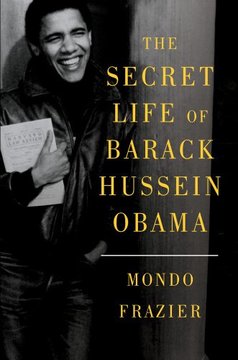
First, they came for the restaurants, then they came for the bars and bowling alleys, now if you live in Minnesota and are a smoker, they're after your apartment and car.
The victories of health Nazis have emboldened them to tackle new challenges. Private apartments and vehicles are their next target.
More top-level strategy for a Smoke-Free MinnesotaBy Mark Brunswick and Curt Brown, Star Tribune:
The answers to this increasing regulation has led to a bizarre invention: faux cigarettes. More from the New York Post:
Fresh from their success winning a statewide smoking ban in bars and restaurants, Minnesota's anti-smoking advocates are ready to zero in on where you live.
One anti-smoking group will kick-start a campaign this week to encourage landlords to outlaw smoking in their buildings. While the program would be purely voluntary for now, some communities might follow two California cities by considering broader ordinances that would apply to multi-unit dwellings.
Smoke-free groups are also considering pushes to restrict drivers who smoke with kids in their cars, park users who smoke and even cigarette-dangling youth-sport coaches. Still, condos and apartments appear to be the next battleground in the state's smoking wars.
It's part of a national trend aimed at snuffing out those who light up. Chicago can now fine people up to $500 for smoking within 15 feet of beaches and playgrounds. Albuquerque nixed smoking at the zoo. Davis County, Utah, has extended its ban to golf courses and cemeteries.
A new smokeless, tobacco-free, reusable cigarette may soon blow rings around the city's smoking ban.As the story states, it's an answer to Nanny State regulations. But is it the right answer? At what point do people yell, "Stop"? Those cheering on the increasing reach of regulators might quiet down some when the focus changes to other areas of private life.
The plastic Crown Seven electronic device, invented in China and sold online for $100, looks like a sleek cigarette holder and even glows red at one end when you take a drag.
It emits a faint water vapor from its battery-powered filter. Because it's not real smoke, the manufacturers hope the device will fly under health inspectors' radar.
Instead of tobacco, the e-cigarette contains a mix of water, nicotine, artificial smoke flavor and propylene glycol, the chemical used in fog-making machines.
Regulations about private behaviors keep multiplying: smoking, diet, health. And the list goes on. It's increasingly harder for regulation advocates to disguise their actions as "caring about health".
In the beginning, it was about the health of children and others affected by second-hand smoke, that great excuse to take decisions out of the hands of people affected. Some non-smokers applauded as noxious regulations, in many cases enacted by non-elected officials, took effect.
In most cases, smokers grudgingly obliged. Now the nabobs of the Nanny State have revealed that no place is free from where they will go in search of regulatory power over people's private lives.
Anyone overweight might take notice. With Democratic presidential candidates Hillary Clinton and John Edwards, mandatory check ups are part of their plans for more government intrusion into private health care.
Those applauding the increased crackdowns on smoking in private living areas might not be cheering so loudly when they are required to jog to retain health care benefits.
It's clear that the power to regulate smoking in private business establishments didn't satisfy the anti-smoking forces; it seems it only made them hungrier for more rules. This need to regulate others leads to a craving for more stringent regulation.
It meets some of the criteria of "addiction".
Once zealots get the power to determine what is best for someone else, it's a hard habit to break.
by Mondoreb
& Little Baby Ginn
Back to Front Page.






























No comments:
Post a Comment
Leave your name/nic.
We've changed the comments section to allow non-registered users to comment.
We'll continue like that until it's being abused.
We reserve the right to delete all abusive or otherwise inappropriate comments.